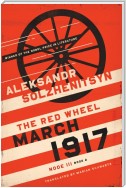Aleksandr Solzhenitsyn

Aleksandr Isayevich Solzhenitsyn (Russian: Алекса́ндр Иса́евич Солжени́цы; 11 December 1918 – 3 August 2008) was a Russian writer, dissident and activist. He helped to raise global awareness of the gulag and the Soviet Union's forced labor camp system from 1918 to 1956. While his writings were often suppressed, he wrote several books most notably The Gulag Archipelago and One Day in the Life of Ivan Denisovich, two of his best-known works. "For the ethical force with which he has pursued the indispensable traditions of Russian literature", Solzhenitsyn was awarded the Nobel Prize in Literature in 1970. He was expelled from the Soviet Union in 1974 but returned to Russia in 1994 after the Soviet system had collapsed.
Aleksandr Solzhenitsyn was born in Kislovodsk, RSFSR (now in Stavropol Krai, Russia). His mother, Taisiya Solzhenitsyna (née Shcherbak) was Ukrainian. Her father had apparently risen from humble beginnings, as something of a self-made man. Eventually, he acquired a large estate in the Kuban region in the northern foothills of the Caucasus. During World War I, Taisiya went to Moscow to study. While there she met and married Isaakiy Solzhenitsyn, a young officer in the Imperial Russian Army of Cossack origins and fellow native of the Caucasus region. The family background of his parents is vividly brought to life in the opening chapters of August 1914, and in the later Red Wheel novels.
 čeština
čeština Deutsch
Deutsch français
français magyar
magyar polski
polski русский
русский English
English Azərbaycan
Azərbaycan беларуская
беларуская italiano
italiano ქართული
ქართული қазақ
қазақ Nederlands
Nederlands português
português slovenčina
slovenčina español
español 中文
中文










